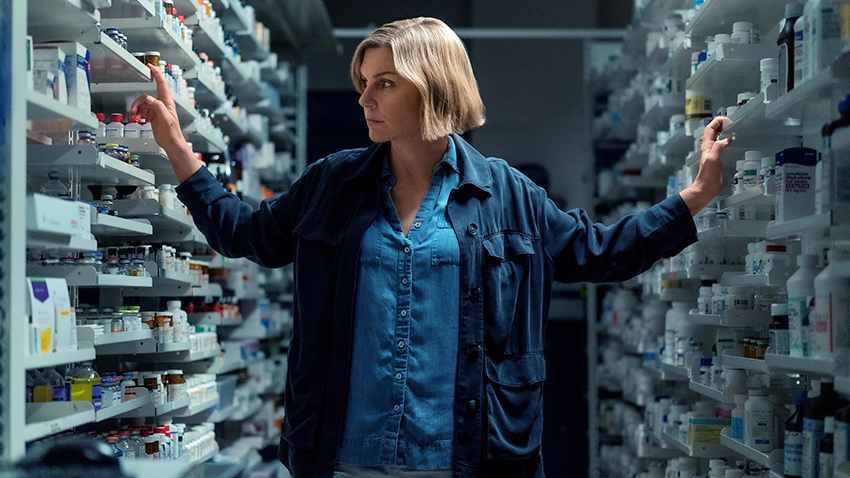Note: This commentary contains spoilers for episode four of Plur1bus
Episode four ‘Please Carol’ pushes Carol (Rhea Seehorn) further into her interrogation of the hive-mind now that she has confirmed they cannot lie. A calm conversation with Larry, one of the hive’s representatives, exposes how limited that honesty is. Their answers come from collective memory rather than understanding. When Carol asks what Helen truly thought of her writing, the response is sharp and unfiltered: Helen once called one of Carol’s novels “harmless cotton candy.” It is honesty without relationship, truth without context. The hive can offer facts, but not the emotional ground that gives those facts meaning.
This distinction sharpens the show’s ongoing questions about connection. The hive’s empathy flows easily, but it is not shaped by risk or choice. Their concern is procedural. Carol’s probing reveals how shallow that form of connection is. It feels complete, yet it avoids the work of listening, forgiving and wrestling with another person. The hive’s unity lacks the tension that makes relationship real.
Carol’s search for a way to reverse the ‘Joining’ leads her to take a dangerous step. She steals sodium thiopental from a hospital and uses it on herself first, recording what surfaces when her guard drops. She then returns to Zosia, handcuffs herself to the bed, and injects the drug into Zosia’s IV. She asks the question that drives her: “How do I reverse the Joining?” Zosia tries to resist. As the drug clouds her mind, the other Joined gather around them and begin to plead, “Please, Carol,” tears running down their faces.
The scene is stark. Carol believes she is acting for the good of all, yet she takes Zosia’s freedom in the process. When Zosia collapses into cardiac arrest, the consequences of Carol’s mission land heavily. Her fight for agency is now tied to the suffering of someone who cannot refuse her.
Loneliness deepens here. Zosia’s physical collapse is matched by the emotional impact on the hive. Their collective crying is rare. It is not a power play but a shared hurt that exposes how fragile their togetherness is when confronted by Carol’s insistence on separation. Their plea carries fear, grief and a request for restraint. They want Carol to stop before her search for freedom destroys the balance they share.
Viewed through a faith-based lens, Carol’s actions take on a complex weight. Her refusal to surrender her individuality can be read as a kind of devotion to the self she believes she must protect. Yet by forcing Zosia into vulnerability, she mirrors the control she opposes. The episode raises a question with spiritual depth: can the pursuit of truth justify the harm it causes another person? Christian ethics often wrestle with the balance between truth and love, agency and responsibility. Carol’s choices place that tension at the centre of the story.
The episode also expands the world through Manousos, another immune. He lives in a storage unit, gathers what he needs and refuses anything the hive offers. His isolation echoes Carol’s, though his version is quieter. Through his radio scanner he hears Carol’s voice and recognises a kindred form of resistance. For him, freedom matters more than comfort. He stands apart because connection without choice holds no value for him.
Episode four marks a shift in Carol’s journey. She learns what the hive cannot do, but she also sees the limits of her own resolve. Her grief, anger and determination form the core of her identity, and she is willing to risk others to protect that identity. The show’s themes sharpen here: resisting assimilation is not simple or pure. It exposes wounds, creates conflict and challenges the very idea of what community should be.
The hive’s final words linger. “Please, Carol” is a plea for restraint, but also a call for recognition. It is an appeal for a connection that honours both individuality and the collective. Whether such a balance is possible remains uncertain, but episode four suggests that the path toward it will not be easy — for Carol, or for the world reshaped around her.





